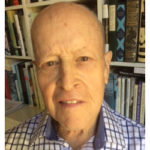Forced dislocation from traditional homelands in the late 1960s and early 1970s made many Aboriginal families and groups move, for the first time, to small towns in the north and north-west of WA. This drift to strange environments with access to alcohol and living close to people from different backgrounds, languages and alien beliefs and behaviours, had dire and long-lasting social consequences as well as negative impacts on health and well-being and contact with the police. This came with a price to the general community as well as to those who were displaced.
The controversial proposal by the Federal and WA governments to close or remove essential services from dozens of small Aboriginal communities in WA’s remote north runs a real risk of repeating the mistakes made 40 years ago. Some Indigenous people in such communities have not experienced life beyond their traditional homelands, some of these people have limited English language skills, maintain their ancient customs, beliefs and rituals, and many have never been exposed to alcohol. The inevitable drift to towns or their fringes that would follow this forced, abrupt change to their way of life will bring immense pressures on them. This will expose these internal refugees to the real risks of an alien environment and almost certainly bring harmful impacts to their well-being in social, emotional and health terms. As with the disaster of 40 years before there would be real costs to the governments and a need for public services to manage the mess.
If the governments’ proposal goes ahead, these risks and their consequential costs must be assessed very carefully beforehand in an open, consultative process. If this does not occur, the harm that follows will undoubtedly bring a savage and long-lasting backlash. It could also further tarnish Australia’s reputation wider afield in its record of handling issues affecting the First Australians.
Michael Gracey AO is a Paediatrician who has worked with indigenous people, communities and organisations for over 40 years, particularly in the far north of WA. He was Principal Medical Adviser on Aboriginal Health in the Department of Health in WA for more than a decade and was Australia’s first Professor of Aboriginal Health at Curtin University in Perth. He has also been President of the International Paediatric Association.
Michael Gracey is a paediatrician who has worked with Aboriginal patients , their communities, and organisations for more than forty years. He was Principal Medical Adviser on Aboriginal Health to the West Australian Department of Health, became Australia’s first Professor of Aboriginal Health, and is a previous President of the International Paediatric Association.

Comments
One response to “Michael Gracey. Risks of Closing Remote Aboriginal Communities.”
This is indeed a wicked problem.
I worked in the Kimberleys in the early 1960s and have watched with dismay the effects over the years of the displacement of the Aboriginal people from the stations and traditional lands. It has been a sad, sad time for these people and to think that further relocation will be forced upon them is very hard to contemplate. Conditions in many of the remote communities are tough, especially where the abuse of alcohol is rife, but our challenge is to find a positive solution that respects the preferences of these people, not abandon them.